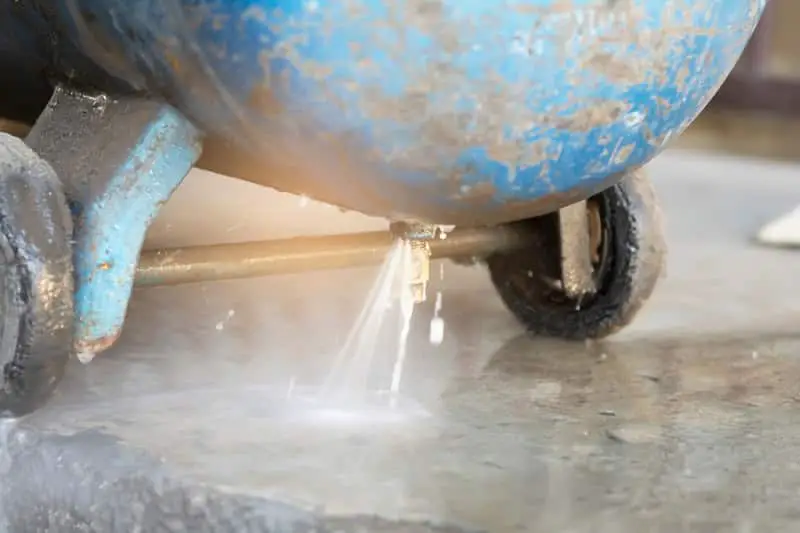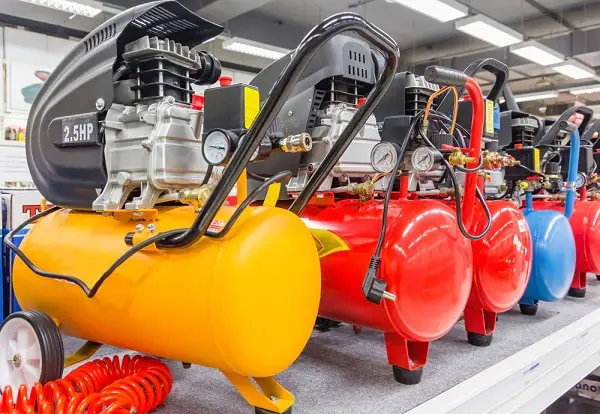
Can an Air Compressor Get Wet and Freeze?
Air compressors are created to work in ambient and standard temperatures. Hence, outside these temperatures, problems start to occur with either freezing or overheating. Air compressors generate a lot of water, depending on its inlet conditions. However, if the water is left in the system, it can harm the air compressor and the components connected to the compressed air system and might contaminate the product.
Can Air Compressor Get Wet?
When the water that is generated by the air compressor is not removed, it can move through the pipes and overpower the air dryer. Hence, the water will corrode the steel pipes, and turn into a solvent for the compressor lubricant. The water will collect the oil, dirt, and rust from the pipes and carry it downstream which will clog the pneumatic components or worse, it will get all over the product. Additionally, since the compressed air system is known as an oxygen-rich environment, bacteria can start to grow in the pipes, consuming the organic materials.
Compressors usually have water separators, which are known to release extra water from the air stream. But the air that comes out of the compressor is usually warmer than the ambient conditions. When the saturated and warm discharge air cools down in the pipes, some of its water is released to condensate; hence there will be water in the pipes. Therefore, air dryers are used in compressed air systems, such as the refrigerated dryer which cools the discharge down to an optimal temperature, and then remove the condensed water.
Can Air Compressor Freeze?
The air compressor room’s temperature should not drop below a certain degree. When that happens, one should be prepared to face the consequence of the cold ambient conditions on the compressed air equipment. Temperature below freezing point can have severe effects on the compressed air equipment. Since compressed air produces condensate, the condensate will solidify below freezing temperatures. This can result in short to long-term damage to the equipment such as cracking and freezing of heat exchangers, freezing control lines, frozen drain valves, and etc.
In these freezing circumstances, refrigerated air dryers tend to work too efficiently. Hence, the moisture that it is trying to separate will be cooled to a certain point where it will, in fact, freeze in the machine. This will result in internal blockage. Plus, since the water expands as it freezes, it will most probably crack the heat exchanger. Additionally, air compressor oil results in becoming thicker when the ambient temperatures are cold; hence decreasing its lubrication capabilities.
Moreover, the drain valve that is on the refrigerated air dryer might freeze open or shut. This might not block the flow of the air through the dryer, but it will result in the blockage of the condensate from draining it. Thus, even if the dryer is chilling the air, it becomes ineffective due to the moisture being unable to escape.
In conclusion, it should be known that the ambient temperature is supposed to be the temperature surrounding the compressor itself, which does not have to be the air temperature outside. The ambient temperature of the compressor will differ from the outside temperature depending on its location. Whether it is situated in a heated compressor room, unheated and ventilated compressor room, or outside underneath a rain cover. It is vital to know that air compressors should be placed in a well-ventilated area, so despite being high in temperature, the room will be effectively ventilated in order for the compressor to work correctly.
Related Video:

